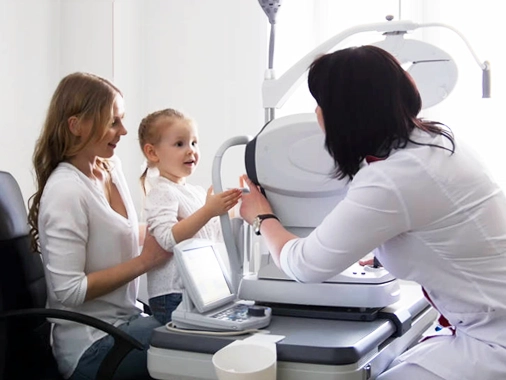
Children’s eye health is crucial for preventing eye diseases that may develop later in life. Many significant eye problems or defects can begin in early childhood.
Early diagnosis and treatment of eye conditions in children provide significant advantages for both eye health and overall quality of life. Regular eye examinations are recommended at birth, during the first year, before starting school, and throughout the school years.
Caring for children’s eyes in the early stages of life is extremely important. Good eye health plays a critical role in a child’s ability to explore the world, learn, and develop. Key points regarding children’s eye health include:
Regular Eye Exams: Children should have eye exams shortly after birth, at 6 months, 3 years, and in subsequent years. Early exams help detect eye problems sooner and make treatment more effective.
Nutrition: A healthy diet positively affects eye health. Nutrients such as vitamin A, omega-3 fatty acids, and lutein are particularly important. Foods like carrots, spinach, and salmon provide these nutrients.
Eye Hygiene: Teaching children proper eye hygiene is essential. Frequent hand washing and avoiding rubbing the eyes can reduce the risk of infections.
Sun Protection: Children’s eyes must be protected from harmful ultraviolet (UV) rays. Sunglasses or wide-brimmed hats are effective measures.
Amblyopia and Strabismus: Conditions like lazy eye (amblyopia) or strabismus should be detected and treated early. Early intervention leads to better outcomes.
Screen Time: Computers, tablets, and phones can impact children’s eye health. Limiting screen time and encouraging breaks is important.
Eye Fatigue: Children experiencing eye strain from schoolwork or homework should rest their eyes regularly.
To maintain your child’s eye health and detect issues early, it is important to ensure regular eye exams, a balanced diet, appropriate sun protection, and good eye hygiene. If any eye problems or complaints arise, consult an eye specialist promptly.